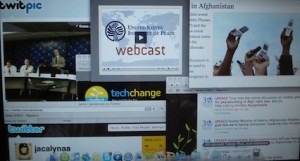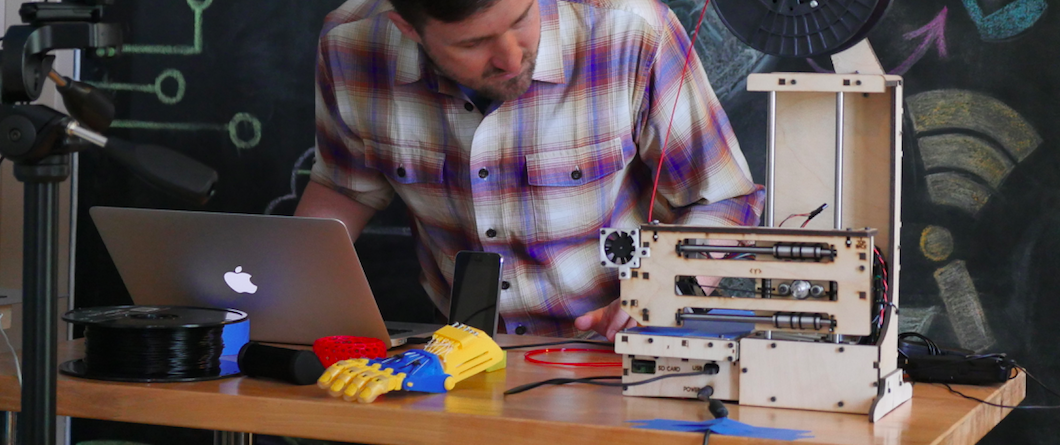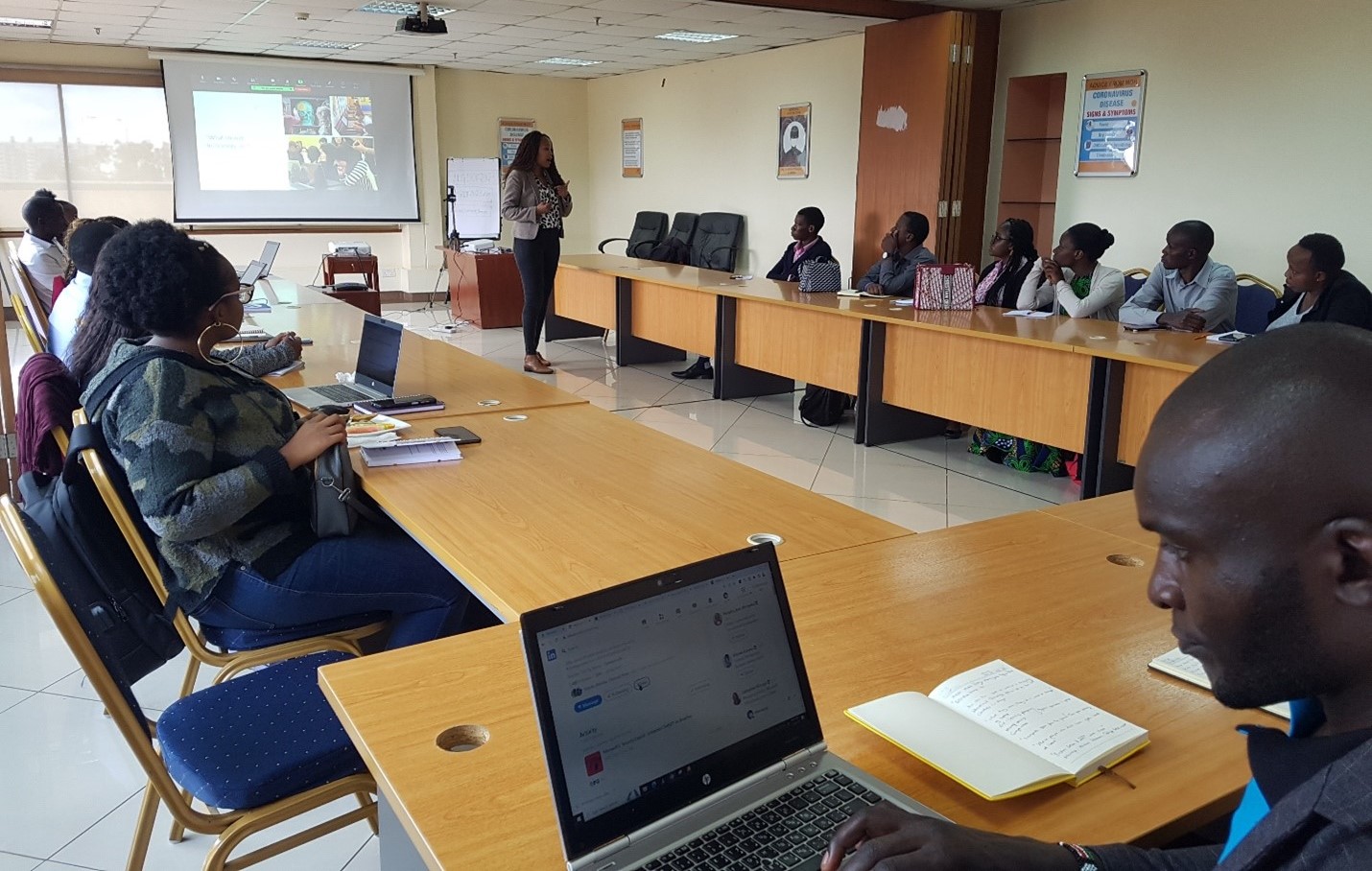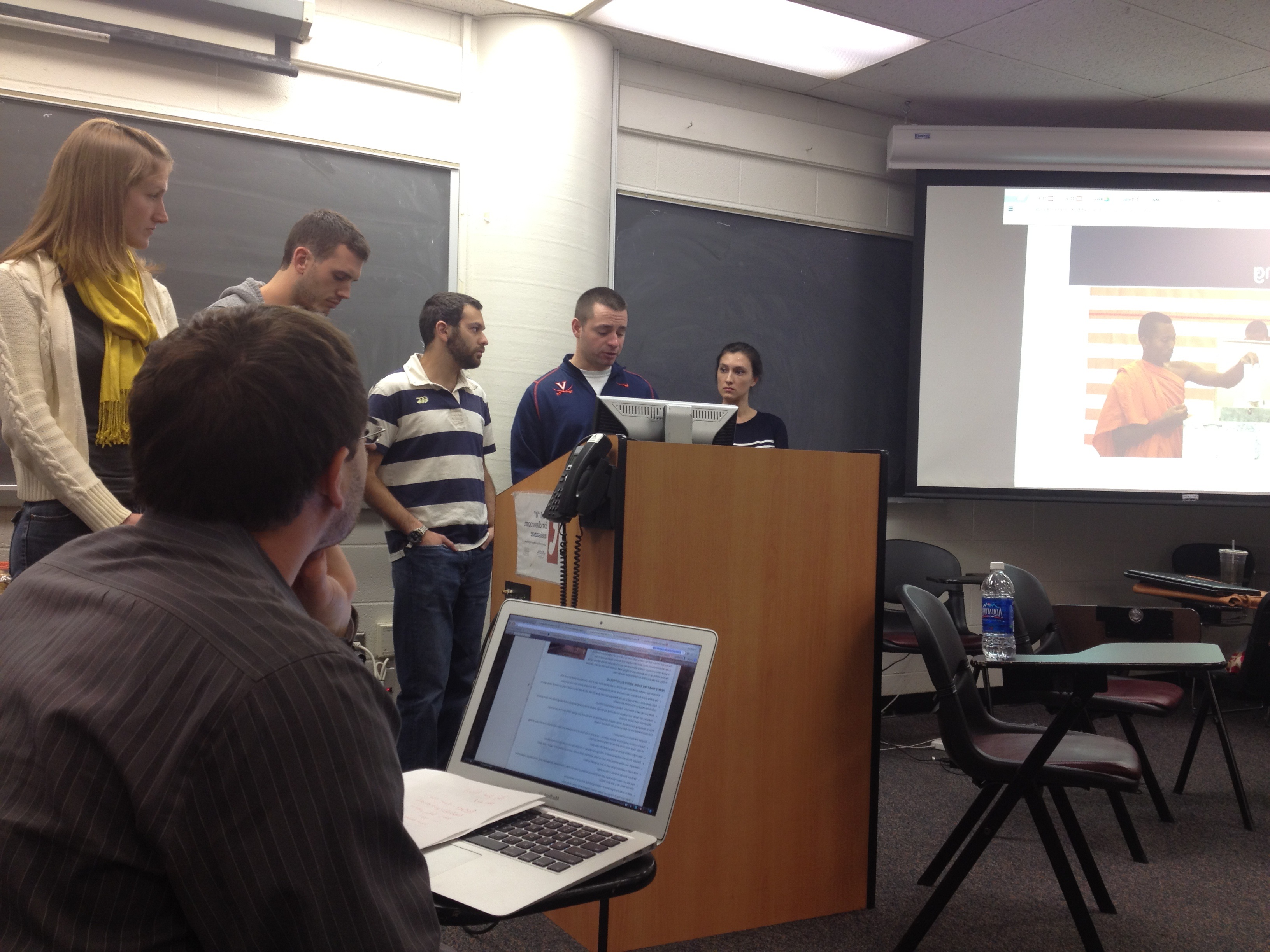 Yesterday’s Can You Help Me Now? Mobile Phones and Peacebuilding In Afghanistan panel at the United States Institute for Peace (USIP) showcased experts on Afghanistan from all walks of life—government officials, programmers, and even social media gurus.
Yesterday’s Can You Help Me Now? Mobile Phones and Peacebuilding In Afghanistan panel at the United States Institute for Peace (USIP) showcased experts on Afghanistan from all walks of life—government officials, programmers, and even social media gurus.
This event drew in a crowd of enthusiastic Twitterers using the hashtag #usipmobile, sharing questions and comments throughout the event and highlighting some of the key quotes of the day. Corresponding with the panel discussion, Twitter users tweeted about everything from improving governance (i.e. rule of law and anti-corruption) to countering extremism (i.e. media development and counter-insurgency) to delivery of essential services (i.e. education, health, agricultural development, and commerce).
Just over half of all Afghan homes had mobile phones as of 2009—44 percent in rural areas—and one percent of Afghans are now using text messaging to get news at least once per week. Some 1.2 billion dollars is being poured into Afghanistan’s Telecommunications industry, which sees over 12 million mobile users—a dramatic increase from 150,000 users in 2007. With these figures in mind, proper technology training became a recurring topic of discussion, as Afghan literacy rates range between 10 and 15 percent. Incorporating the gender aspect, the panel too decided that women must be involved in digital advancements in Afghanistan.
“Looking back 250 years ago, people had the need to communicate,” said James Eberhard, founder and CEO of Mobile Accord. Today, you can order McDonalds from your cell phone. From Ushahidi being used in Panama and Liberia to SMS messages in Pakistan and the Congo, everyday citizens are becoming a new, powerful force of change. Look at the crisis in Haiti, where mobile phones alone, via texting 90999, got more than two million Americans involved in the crisis. And in Afghanistan, texting 999 is getting locals involved in traditional community policing mechanisms via the Crimestoppers program, sort of an Afghan version of 911. Nick Lockwood, Afghan Communications Adviser in the Helmand province, said this phone line gets some 1,000 calls per week.
Locals are even using cell phones for mobile banking—e-currency—with the help of Roshan, who, according to representative Shainoor Khoja, is helping 60 percent of Afghans, with 480 million dollars invested in the country. Ruha Devanesan of the Internet Bar Association highlighted how 80 percent of Afghans who depend on land for their livelihoods don’t have access to the judicial system and also discussed the Internet Silk Road Initiative. Josh Nesbit, of FrontlineSMS:Medic, said, “a good strategy to win people over is to keep the population alive and healthy,” highlighting how mobile phones are being used in the heath sector. Charismatically, he admitted, “I’m not the right person to tell you what works in Afghanistan, we should speak to 50 Afghan physicians.” Equal participation of outside actors and local Afghans will bring about change.
Naturally, the discussion focused closely on the Taliban as well. Lockwood said the key to winning in Afghanistan is not killing Taliban but winning the communications war. The Taliban are in opposition to new technological infrastructures simply for being what they are. The panel discussed how good guys and bad guys are using mobile tools in similar ways, but the general consensus seemed to be that good guys can indeed prevail. Though technologies are being considered powerful weapons for inducing change, “mobile applications are not a silver bullet,” said Siddharta Raja, representative of the Global ICT Department of the World Bank Group. “They will not solve world problems,” he continued, but they are contributing to bring about solutions, resolutions, and, eventually, peace in Afghanistan.
Tweeting as @jacalynaa, I sat outside my cabin, high atop a mountain in Costa Rica with a bright morning view of lush greenery, streaming in on the conference via the Web. Though my Internet connection was a shaky at points, occasionally pausing during important commentary—hence the time-lapse between some of my Tweets—yesterday’s conference proved that technology is enabling people all over the world to learn and participate in important events like this, from distances far and wide.



